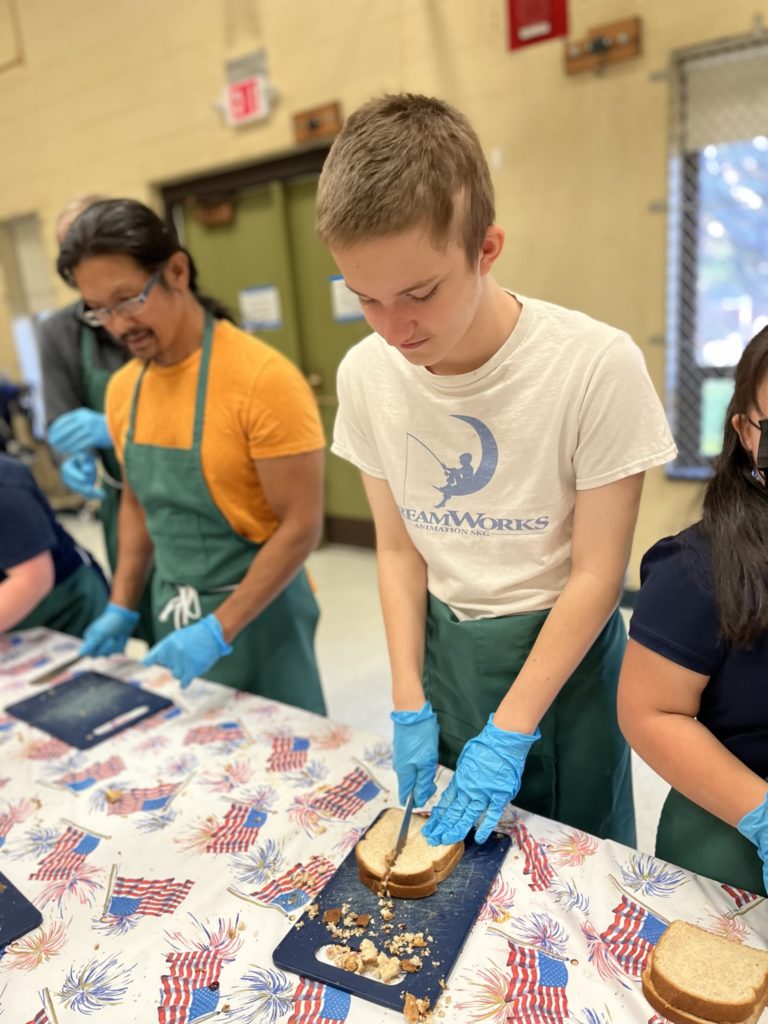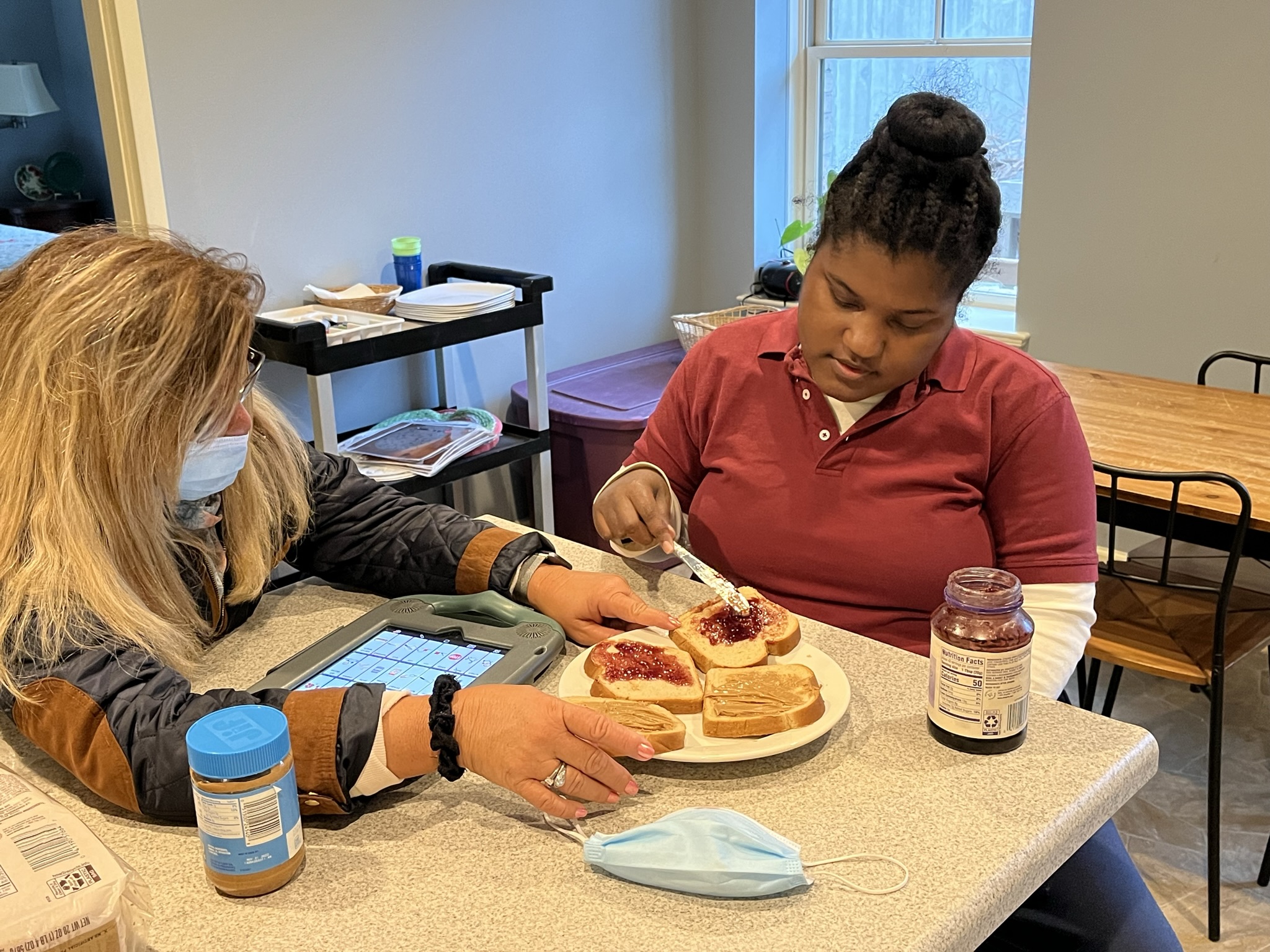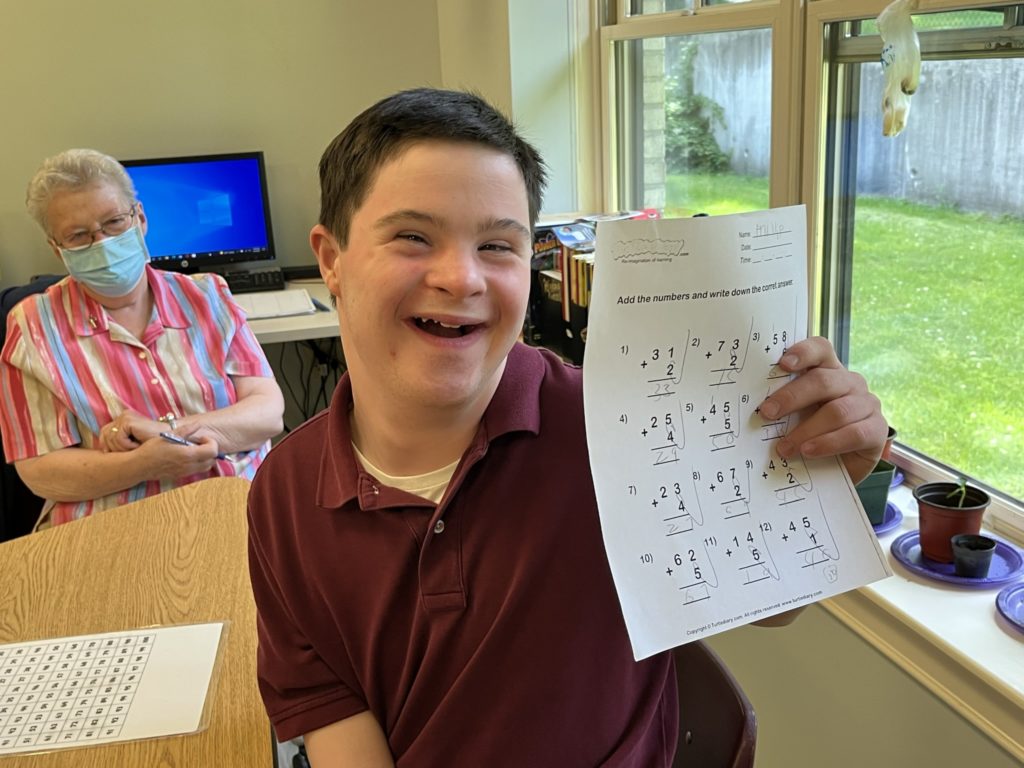About the Program
INTEGRATED, INTENTIONAL LEARNING
The Academy offers a careful integration of academics and life/vocational skills. Our facility is specially designed for our program. Our teachers are state-certified professional educators who holistically address students’ social and academic education, supported by experienced instructional assistants.
Program focus evolves with the student at each stage of learning. Elementary and middle school-age students spend a greater amount of time on core academics, supplemented with life and social skills. The adaptive High School Program introduces a greater concentration on vocational skills, reinforced by continued work on academic and social skills. The Transition Program has equal emphasis on vocational and independent living skills, reinforced by functional language and math skills.
Academics
The core Academic Program at Saint Catherine Academy includes language arts, mathematics, science, and social studies.
Using a combination of individual instruction and small group sessions, as well as assistive technology, our certified special education teachers are able to assess progress and plan necessary accommodations for each student to maximize potential. Emphasis is placed in developing and maintaining language arts skills and math proficiency.
Each student’s plan is highly individualized and driven by ongoing assessment that incorporates the student’s interests. Annual goals and objectives are based on the Diocese of Bridgeport curriculum frameworks and developed based on each student’s need and current functioning.
Vocational Experience
At age 16, job skill development becomes part of our students’ individualized plans, with the goal of both personal independence and integration into the workplace.
ONSITE OPPORTUNITIES
OFFSITE OPPORTUNITIES
Job sites have included Gilbertie’s Herb Farm, Fairfield University Food Service, and area elementary schools as child care and preschool helpers. Placements also currently include area restaurants, department stores, and Sacred Heart University.
LEARNING FOCUSES
- Math: managing money using a school-based banking program, budgeting, and consumer skills
- Language Arts: workplace and community vocabulary, resume-writing, and completing employment applications
- Life Skills: independent living skills, such as meal preparation and shopping.
- Developing appropriate social skills for community activities
- Learning safe behavior in the community
- Completing volunteer work and school-based projects
- Continued development of language skills for volunteer tasks and participating as independently as possible in community and living situations.
Social Skills
Students with developmental delays often need help in developing these crucial social skills. Direct teaching and guided practice, along with school-wide consistency, help with the development of these skills. Engagement with age-level peers through family and school relationships is encouraged. Modeling appropriate behavior in different social situations, use of video to provide individual feedback, social stories, and role playing are methods to develop and practice desired skills.
- sharing
- attending to others
- participating in group activities
- introductions and appropriate greetings, depending on relationships
- waiting and taking turns
- recognizing and responding to emotions
- managing frustration
- understanding personal boundaries
Life Skills
LIFE SKILLS APARTMENT

LIFE SKILLS TOPICS
- Personal care
- Recreation and leisure time—exercise, games, social interaction
- Community participation through activities such as grocery shopping, using the public library, and taking public transportation
- Money management—budgeting and banking
- Culinary skills—planning and preparing meals, appliance safety, and nutrition
- Housework and basic home maintenance
- Technology—using the telephone, internet, tablets, and computers
- Transportation

Health & Wellness
We address healthy eating through our culinary and nutrition program. Students discuss healthy food choices, and plan menus accordingly. They shop for the food, prepare it in the Apartment kitchen, and eat their meal family-style. Finally, they clean up to maintain a clean and healthy space for food preparation.
Our health curriculum is integrated with the Life Skills Program and the related therapeutic services of Occupational Therapy, Physical Therapy, and Speech & Language Therapy.
Creative Arts
ART
Students develop their fine motor skills, learn how to focus and follow directions, and understand that there are many ways to “do art.” The artwork that is created has a personality as unique as each individual.
MUSIC
MOVEMENT
Therapies
OCCUPATIONAL THERAPY (OT)
PHYSICAL THERAPY (PT)
SPEECH THERAPY (ST)
Building language skills is an integral part of the curriculum, reinforced by all staff in the classroom and community, and at vocational sites. In addition to spoken and written words, communication strategies for non-verbal students include sign language and assistive technology—such as Voice Output Devices (VODs), tablets, and computer software.

